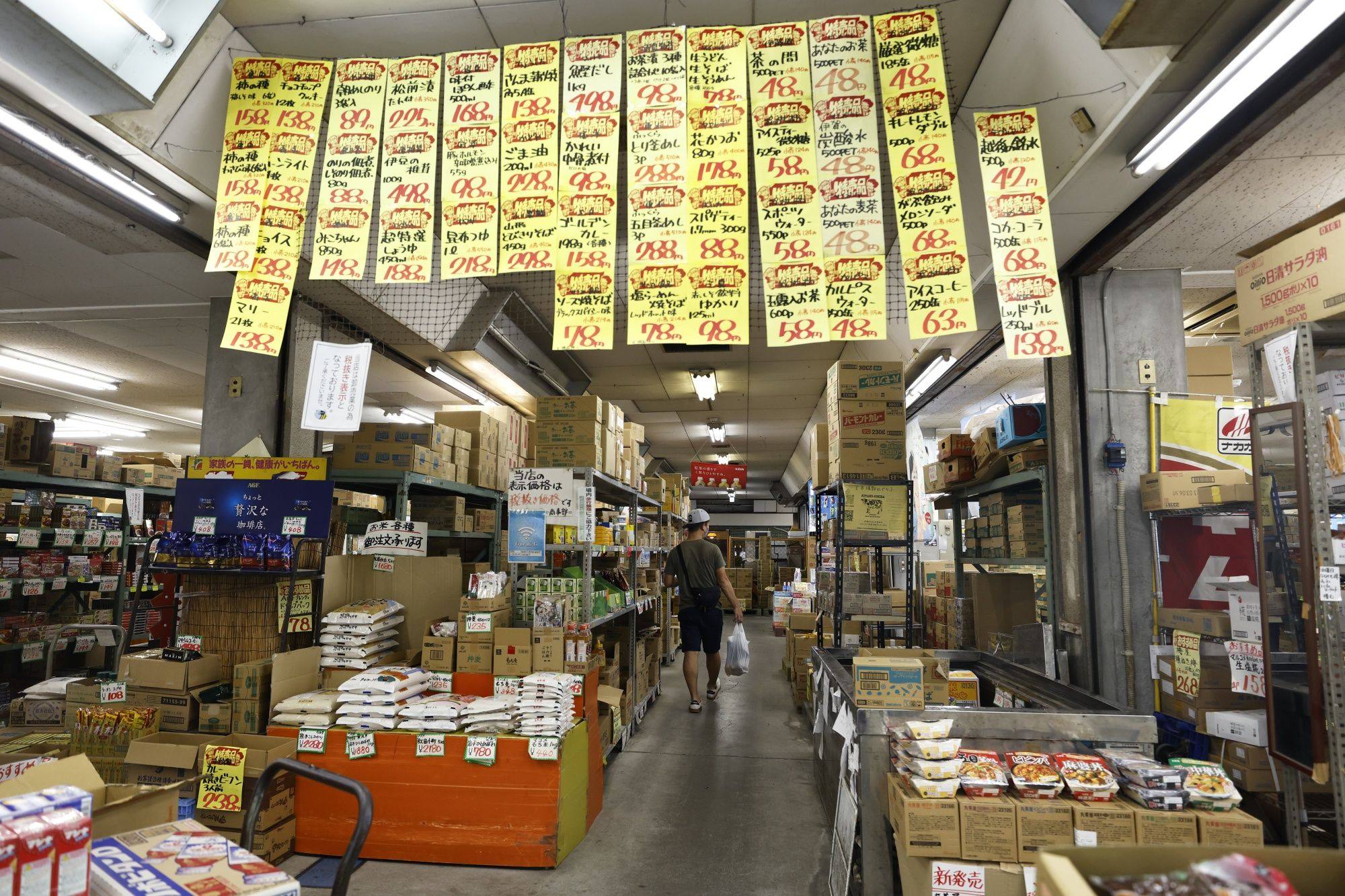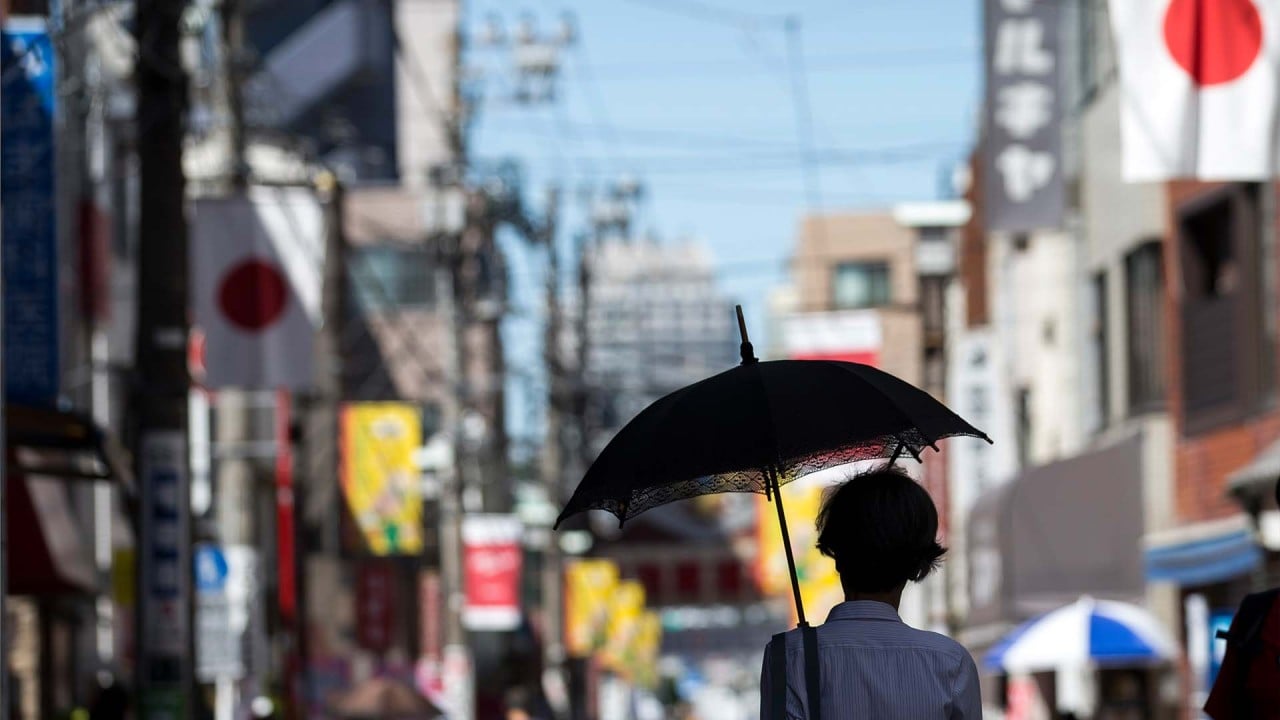
Japan’s Kishida reveals extra measures to cope with inflation after Cabinet revamp
- Prime Minister Fumio Kishida said price hikes, particularly for energy and food items, are having a ‘huge impact’ so he will implement relief steps ‘seamlessly’
- Rising energy, raw material and grain prices, largely attributed to Russia’s war in Ukraine, have been dealing a blow to the world’s third-largest economy
Japanese Prime Minister Fumio Kishida said on Friday that his government will take fresh measures to ease the pain of rising prices, with inflation a top priority for his reshuffled Cabinet amid deteriorating public support.
Kishida said price hikes, particularly for energy and food items, are having a “huge impact” on companies and consumers, telling a government meeting that he will instruct officials on Monday to implement relief steps “seamlessly”.
Rising energy, raw material and grain prices, largely attributed to Russia’s war in Ukraine, have been dealing a blow to the world’s third-largest economy.
The government has already announced a series of inflation-relief measures, including subsidies intended to bring down retail petrol prices, to aid farmers hit by surging fertiliser costs, and to keep the price of imported wheat that the government sells from rising above levels before the war began in February.
‘An excuse to purge’: Japan PM removes Abe supporters in cabinet reshuffle
“Bread and noodles, which are made from wheat, are essential items in our daily lives. It’s critical that their prices are stable,” Kishida said at the meeting, attended by newly appointed Cabinet ministers and business leaders.
“I will instruct (officials) to extend support by catering to the needs of each region and to take additional steps focusing on energy and food items that make up the bulk of the recent price hikes,” he added.
After attending the meeting at the prime minister’s office, Nobuhiro Iijima, president of Yamazaki Baking, said his company has already reviewed the pricing of its plain bread and pastries.
“We couldn’t be happier if we can somehow avoid another price review,” he said.
Japan has not seen inflation accelerating as fast as in the United States or some European nations and price rises have not been broad-based, partly because companies do not want to scare off consumers by hiking retail prices at a time when domestic demand is weak.
But consumers are already feeling the pinch of higher costs of everyday goods, which could put a dampener on a rebound in consumption after the lifting of restrictions that were put in place to rein in Covid-19 infections.
Kishida said after he reshuffled the Cabinet on Wednesday that he will use fiscal spending without hesitation to respond to inflation and Covid-19, first tapping 5.5 trillion yen (US$41 billion) in reserve funds allocated in a supplementary budget for the current business year to next March.
Surging Covid-19 cases are a source of concern for Kishida, who is aiming to keep the economy going while urging people to remain vigilant against the virus. He received a fourth coronavirus vaccine shot on Friday.
The prime minister is scrambling to reverse a recent downtrend in his Cabinet’s approval ratings, due largely to the public’s wariness about the ruling party’s links to the Unification Church following the shock killing of former Prime Minister Shinzo Abe.
The man who shot Abe during a campaign speech ahead of the House of Councillors election in early July told investigators he believed the former premier had links to the religious group, which he blamed for financially ruining his family after his mother made huge donations.

Some of the new senior vice ministers and parliamentary vice ministers revealed their links to the Unification Church soon after their appointments on Friday. They had took part in events related to the church, sent congratulatory messages or sold fundraising party tickets.
The revelations came after Kishida said all Cabinet members, senior vice ministers and parliamentary vice ministers must check and strictly review their ties to the group as part of their responsibility as politicians.
In a Kyodo News survey conducted Wednesday and Thursday, nearly 85 per cent of respondents said politicians should cut their ties with the religious group. The approval rating for Kishida’s Cabinet recovered slightly to 54.1 per cent after the reshuffle, from a worst-ever 51.0 per cent in late July.
The church, now formally known as the Family Federation for World Peace and Unification, has drawn attention over problematic practices such as so-called spiritual sales, in which people are talked into buying items for exorbitant prices.


